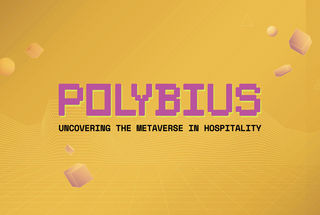Metaverse Glossary
From "Avatar" to "Wallet": the definitive metaverse glossary for dummies
Metaverse and Web3 in Hospitality — Viewpoint by Simone Puorto
From my perspective, companies don't need to be fluent in Metaverse lingo but to understand the utility that they can bring from the Metaverse, the "use case" that better works for each business.
Regarding "lingo" I have realized that every time I talk about the Metaverse with somebody that is not familiar with this world, some important concepts and vocabulary must be explain. Here I listed some words, useful not only for business but for whoever wants to experiment the Metaverse.
Metaverse: The Metaverse is a set of Virtual Worlds (also called metaverse platforms). Ideally these platforms will be interconnected and interoperable (like today websites). Each virtual world must have a unique scope. The Metaverse is supposed to become the new interface of the Internet.
Web3 (and not Web 3.0): It is the new evolution of internet. We are moving from Web 2.0 (today) focused on Read-Write to Web3 where users Read-Write-Own or Read-Write-Execute.
Utility (in Web3): It is a collection of functions recorded in the blockchain. These functions can be financial applications, supply chain, digital identity (medical history, educational history, etc.) and access management.
Utility (in the Metaverse): It is the reason why a user visits a metaverse platform. The utility can be a medical appointment, a training programs for a variety of purposes, a platform to support tourism or learn history, to access virtual events, an immersive commerce platform, etc.
Blockchain: The Blockchain can be imagined as a gigantic database distributed in many computers. The blockchain can potentially make the Metaverse interoperable. The blockchain makes transactions transparent, immutable and irreversible.
Blockchain Transaction: It is a contract, agreement, transfer or exchange of assets between one or more parties. The transactional data are all stored in the blockchain. The information related to the transaction remains stored permanently.
NFT (Non-fungible-token): it is a unique digital identifier of an utility (it can be called digital asset or digital collectible according with the use case). The NFT cannot be copied, substituted or divided. The proof of ownership of the NFT is recorded in the blockchain together with the history of the specific asset.
DAO (Decentralized Autonomous Organizations): Is a new way to make decisions where there is no central authority. Votes and activities are stored in the blockchain. A DAO can be also used within a community to ask consensus and opinions.
Last but not least, it is important to say that when we talk about 'metaverse' or 'blockchain' we are not talking about something for investors only but about something that has an utility IRL (In Real Life).

 by
by 

